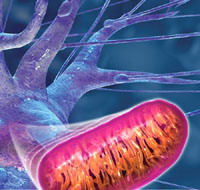Vitamin E may influence physical function
A new study, conducted by Yale University's School of Medicine, showed that the level of vitamin E has significant influence upon physical function.

Vitamin E is the general name for two classes of molecules (tocopherols and tocotrienols) having vitamin E activity in nutrition. The main function of alpha-tocopherol in humans appears to be that of an antioxidant.
In a function of an antioxidant, vitamin E may prevent or reduce the propagation of free radicals in body, which in its turn may help to reduce muscle or DNA damage and the development of illnesses and pathologic conditions.
It was thought that vitamin E prevents serious illness, such as heart disease or Alzheimer's, but recently it has turned out that very high levels of vitamin E could actually be harmful (for example, risk of bleeding problems). That’s why the recommended norm is 400 I.U.'s [International Units] of vitamin E per day. But still the dose should be significantly lower than that - 15 milligrams or 22.5 I.U.'s daily for anyone over the age of 15.
The researchers selected almost 700 adults over age 65, examined blood tests to determine vitamin levels and reviewed data from physical function exams completed at the start and at the end of the study.
Excluding all the by-factors (such as low physical activity, unhealthy way of life), it was discovered that two factors were strongly associated with a greater chance of experiencing physical decline - age and low levels of vitamin E.
Following the results it’s not recommended to take vitamin E supplements. It’s just enough to be on a good nutritious diet, with adequate caloric intake and adequate exercise.
Subscribe to Pravda.Ru Telegram channel, Facebook, RSS!


